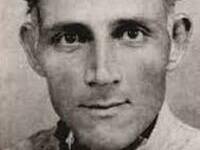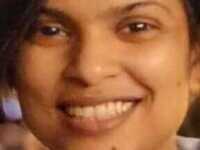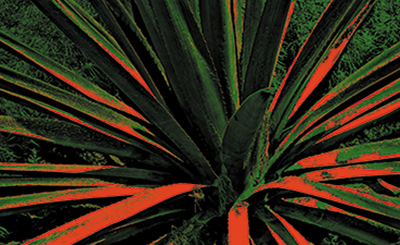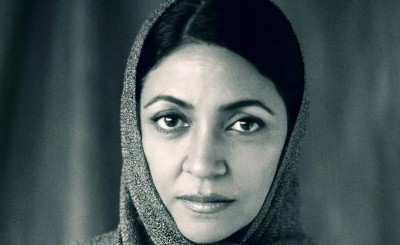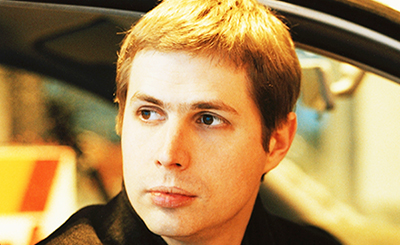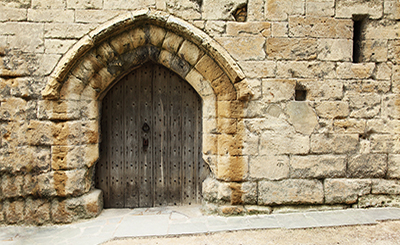
Editor’s note: ‘The Horoscope of the Modern,’ translated from Muktibodh’s ‘Naye Ki Janamkundali,’ is a poignant reflection on individual and societal growth, compromise, and the struggle for meaningful change in an evolving world.
***
I know a certain man whom I (with due apologies) considered very intelligent at one point of time. I had great expectations that he would turn out to be a bright, talented person in future. People thought that I was giving undue importance to that guy. He struck me as a unique product of our Indian culture. He took his opinions way too seriously. They were natural elements for him, akin to sunshine and air. Perhaps, even more. They were the mountains, rocks, cliffs, plains, rivers, waterfalls, forests and deserts of his mental geography. I could also feel that while expressing himself this man traversed an inner journey by engaging all his senses. He didn’t just present his thoughts and feelings; he touched and smelled them; he could tell their pattern, shape, colour and speed — as though they were physically present and alive in front of him. His brain was an iron cage or goldsmith’s tiny forceps, that could extract the minutest as well as the grandest of facts, and delicately bring them out to the fore with solid conviction.
However, that’s something from days gone by. I now believe that I too have grown intelligent. I reckon that my friend’s intelligence is attributable to his life itself, and not just the vibrations of his neural network.
When I ran into him after 12 years, the happiness and surprise was overwhelming. It was more of a surprise than happiness. In the middle of two divergent streams of rivers, such high mountains had cropped out that our directions had changed. When we met again, our attention was naturally drawn toward the length-width and height-depth of these mountains. Twelve years later, we had grown apart as two distinct individuals and how?!
His hair had turned white, yet it was tough to say that he wasn’t young. We could say that he was formerly young; his countenance and complexion bore the aura of his former self rather than his present age. I liked that aura. I feel inclined to fantasize about it romantically. Although it was hard to say if his beauty owed its existence to his physique or the wrinkles on his forehead. I like those wrinkles. A beautiful paper is beautiful per se. But if it’s blank, and carries no words of the heart, where’s the mystery to its beauty? If beauty has no mystery, it’s only a decorative doorpost.
Right in front of us was a peepal tree. Its leaves were fluttering, shining under the moonlight. Our consciousness was guided to a new direction by the moonshine and the shadows etched by it. I was aware that my friend was as distant from Shelley’s “Ode to west wind”, as I was from “square root of -1”. Nevertheless, those distances were familiar- perhaps that’s why they were endearing too.
Distances, I felt good as well as bad. Good, because distances serve to challenge our velocity, and bad, because distances between friends hurt. We use the same language- yet, despite the same literal sense, we diverge in tone and sarcasm. Overcoming distances is human nature. It is romancing bravery. We have to search and find ourselves again.
In a way I was glad that I had forgotten him and moved far away from him. Perhaps it was necessary otherwise, I would have been overshadowed by him. In my eyes he was exceptional and extraordinary. There was a certain uniqueness and cruelty in him. There was ruthlessness too. In his single-minded pursuit of a thought or work, he could first sacrifice himself and others along the line. If this extreme sacrifice entailed warring against his dear ones, he would bear the damages. I was always against this fundamental principle of his life. When he made inroads into politics, I thundered in front of his family members, claiming that it was escapism — his proclivity to not shoulder responsibilities. I also told him that he was not a person cut out for politics. When he entered the world of literature along with politics, I somewhat liked it. But by that time, he was in a downward spiral. The opposition from his family and outside world had worn him out. However, he stuck to his stand due to the stubbornness of his nature. Thereafter, we began to grow steadily distant from one another.
But today, I consider that there is nothing more destructive than worldly compromises, especially when it comes to following an important and noble path, where opposition comes from your near and dear ones as well as outsiders. The higher the hurdle, the more intense the resistance, else commensurately low the compromise.
The heart-wrenching course of this passionate struggle had certainly rendered his personality twisted, and in a somewhat strange shape. But the most commendable part was that he was on the right side. That is why he was extraordinary.
In other words, ‘ordinary’ in my opinion is someone who doesn’t have the guts to follow the extraordinary direction of their inner self. I am that sort of a person. I am plain ordinary (although my fame is a different matter). That guy always incited the maverick inside me. In the light of this stirred up non-conformist, I was torn apart by inferiority complex in one direction; while on the other side, the same non-conformism was provoking my imagination and sentiments and subsuming me into something grander and expansive: it could be integral calculus, or distant nebula, or historical scandal or philosophical principle or wider social goal. That’s why I perfectly knew the intrinsic nature of non-conformism and pressures of the normal, through my friend and myself.
But my pace and vision were different. I undertook work in order to please people. He was driven to work only because one should authoritatively accomplish something that one had undertaken. I had a practical and ordinary brain. He had an unconventional work faculty and style of self-expression. We were polar opposites in our differences. I succeeded in life while he failed. I was hailed as honorable, cultured and reputable. He remained anonymous and obscure. But he never really cared about his condition. This irked me a great deal, because he wouldn’t actually acknowledge my fame as a formidable authority either.
When he returned to my life so many years later, he struck me like a meteorite that whirls around the sun once after a vacation of centuries, only to resume its cosmic trajectory thereafter. I know the price of the experience of its remote journey, even when it might disintegrate and turn to dust in unprecedented struggles billions of miles away and get somewhere lost in vacuum.
But today he told me that his entire life is a map of mistakes. I understood his misery. He desired little successes in life. All he has is a glorious failure. (That’s my comment, not his). I just replied, “But you do have a map! There is no map at all over here — neither right, nor wrong.”
I tried to console him, what else could I have done? It is natural for human beings to harbor desire for some material success. It was only at some careless moment of time, that he talked of being a map of mistakes, else he wouldn’t have brought it up at all[ . However, what’s with these modern times, where even a nightingale wishes to be an owl!
There is a certain magic about moonlight. But this magic is different for different people. I wonder where our conversation sprung from. I was talking to him diffidently. What if I hurt his feelings without intending to. He had bled and burnt his life away for his beliefs. That’s why I was quietly listening to him. Wherever there was potential conflict, I didn’t resort to my usual aggression, instead I put across my point with a smile.
I asked him, “What is the biggest phenomenon in the past 20 years?”
He looked at me for a moment and said, “The disintegration of the joint family.”
I was stumped.
Putting his hand on my shoulder, he chuckled and said, “And this fact is deeply related to literature.”
A mysterious tenderness of the moonshine spread in all directions. There was a chilly silence all around. I slipped into a strange state of mind. I began to look for my neighbours’ lives, searched for the lives of my acquaintances. An uncalled-for anxiety took over me. Yes, it is true that life and times are changing. But I was accustomed to seeing the results of transformations, and not the process of it per se.
Let me tell you that I am well versed in all trends of the times, ranging from visual arts, dance forms to human sociology. Bazillions of facts are in the back-pocket of my heart and mind. That’s why people can’t mess with me. When my friend mentioned ‘joint family’ out of the blue, I tried to test him and asked, “And what was the biggest mistake that happened in these past years?”
He observed a studied silence for a minute and then answered, “The lack of a strategy in the political realm to bring about a social change. The lack of a plan in the literary world to change society. Everyone thought that we could transform the ground situation through general, run-of-the-mill blabber by merely resorting to unidirectional political or literary movements. Consequently, the task of social change was assigned to indirect influences...”
“Don’t you see why Casteism has been on the rise since independence, especially within political institutions...
Literature is also in disarray because indirect influences have been saddled with the responsibility to bring about a social change.”
His proposition seemed quite ridiculous to me. I could see grand pictures of imbecility in it. I thought he had distended his opinion like some rubber strand.
He stared into my eyes with disbelief. I am perhaps thinking of him as an idiot.
In the middle of the night, a moonlit one, some crows on the Semal shrub gave a start. Perhaps some bat had swooped past the tree. Some crows flew away, circled nearby and then settled on some other branch.
But my friend was in a frenzy. He said, “The society has classes, divisions. Within these divisions are families. Family is one of the foundation blocks of society. The virtues and vices of the society are reflected through families. A human’s character is developed in the family — children are raised and educated culturally. They imbibe the good and the bad therein. Our literature and politics do not have a vision that is oriented towards family.”
He bore a minute’s silence and continued.
“With time, the feudal joint family system disintegrated. The beliefs and values that characterized the feudal joint family also faced opposition and resistance.”
“But what happened after that? Boys went out in the field of politics and literature and returned home to do things, in just the same way as they had been done, and think about things, in just the same way as had been thought before. In the society outside, they spoke of rebelling against the authority of capital or money; but not inside homes. It was beyond the boundaries of modesty and dignity- which means that the injustice of the system was challenged outside homes and not within homes. The struggle within home was arduous. The clash of sentiments there was with those who were the part and parcel of your life. So, not only was that struggle deferred, but also uncannily compromised. That is what happened. I say, that is what happened. Accept it!”
It felt as though he was abusing me. A cold wave rolled throughout my body. Even then I thought he wasn’t done with his view, so I stayed mum.
He said, “The ancient relics of our feudalism are resting comfortably within our families. That is how an awfully dangerous — opportunist stance has been adopted towards the modern and the old. Which is why there is only a state of questioning. A question exists- yet, there is no eagerness to pursue its answer through scientific efforts, no intent, nothing. I am talking about the educated middle-class families.”
“The bygones cannot return now. But the new has not replaced the old. Religious practices declined, yet scientific temper did not take over. Religion has disciplined every aspect of our lives. Scientific human philosophy, scientific human perspective did not replace religion; consequently, we have become machines driven by our internal proclivities. We began to yell — “Modernity! Modernity!” without internally imbibing the comprehensive, higher, multifaceted human discipline. Yet we could not understand the meaning of being ‘modern’! Why? Because, ideals-values and modern man became undefined and formless. They could not transform into a new discipline of a solidly firm, and pervasive mental authority. They could not replace religion and philosophy.”
More from The Byword
Comments
*Comments will be moderated



